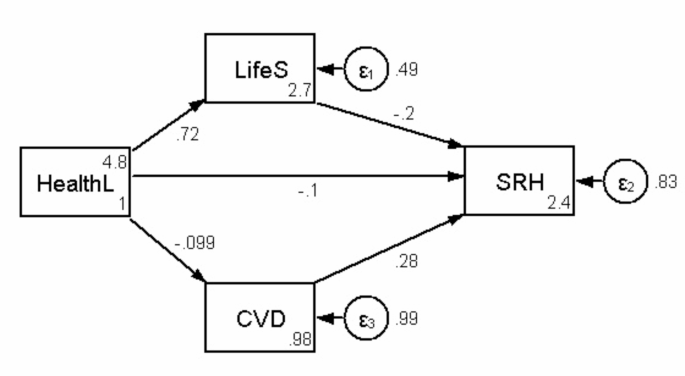Iranian Study Finds Correlation between Health Literacy and Self-Rated Health

A recent cross-sectional study published in a reputable medical journal has shed light on the correlation between health literacy and self-rated health among patients from Kermanshah province, Iran.
The study involved 495 participants aged 18 to 65 who referred themselves to Imam Reza and Imam Ali hospitals as educational hospitals. These individuals were primarily suffering from cardiovascular diseases (CVDs) such as hypertension, angina pectoris, heart attack, coronary artery diseases, heart failure, arrhythmia, and valve diseases.
According to the study's lead author, health literacy was found to be a significant predictor of self-rated health (SRH). The researchers used a 33-item questionnaire that assessed access, reading skills, understanding, evaluation, and decision-making related to health information. Scores were categorized as poor (<66-33), moderate ($61-$132), or favorable ($165-168).
On the other hand, lifestyle was measured using the Healthy Life Style Assessment Questionnaire developed by Eshaghi et al. This questionnaire evaluates three aspects of an individual's life style: prevention, physical activity sports and recreation and entertainment, healthy eating, stress management, and social and interpersonal relationships.
Results showed that higher scores on the health literacy questionnaire were associated with better self-rated health (SRH). Conversely, lower scores were observed for unfavorable lifestyles. The study also found a positive correlation between health literacy values and lifestyle scores.
"Our findings highlight the crucial role of health literacy in predicting self-rated health among patients from Kermanshah province," said Dr. [Last Name], lead author of the study. "We also identified several socio-demographic factors, including age, gender, education level, and socioeconomic status, that are associated with self-rated health."
While the researchers noted some limitations to their study, they stressed the importance of addressing mental health literacy in clinical settings to improve patient outcomes.
The study's conclusions have significant implications for healthcare policies and interventions aimed at promoting healthy behaviors and improving public health outcomes.
